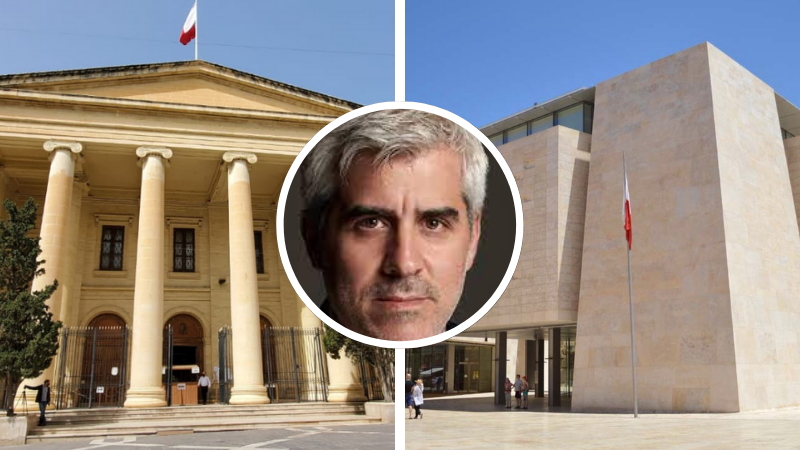The government is “either incompetent or unwilling to listen” following its decision to implement a legal notice which gives the court’s director-general discretion to hide court records, according to the president of the Malta IT Law Association (MITLA).
MITLA, an association headed by lawyer and university lecturer on data protection Antonio Ghio, had already published an extensive statement in 2018 following the removal of court judgements involving two prospective lawyers awarded a warrant despite past criminal convictions.
The legal notice in question, LN 456, empowers the director-general of the Court Services Agency to determine which court judgements can be removed from public record, without criteria or controls to ensure the system is not abused.
LN 456 has garnered strong opposition from media organisations as well as legal experts, including former European Court of Human Rights Judge Giovanni Bonello and lawyer Michael Zammit Maempel.
Both Bonello and Zammit Maempel pointed out that the right to be forgotten cited in LN 456 applies only to cases in which individuals sought to have personal information removed from commercial search engines, not court records.
Speaking to The Shift, Ghio detailed an extensive explainer in which MITLA had, in 2018, outlined that the right of erasure, commonly known as the right to be forgotten, specifically refers to exceptional circumstances in which the public’s right to be informed of past convictions does not outweigh the privacy of the individual.
“We had created a checklist for the government to follow. When you look at this legal notice, all the notice says is that the person who can exercise the right of erasure is the director-general of the court at his own discretion. Telling me this is at the director-general’s discretion is the equivalent of stating that the director-general of the prison, for example, has the discretion to regulate discipline in the prison,” Ghio told The Shift.
“How would the prison’s director-general do so if that was the case? Would people be strapped to a chair or burnt with cigarette butts or anything of that kind? The point of laws isn’t to simply give people decision-making power; that power must be regulated, clearly delineated, proportionate and transparent,” Ghio added.
In its 2018 statement, MITLA had quoted Article 29 Working Party’s guidance on the matter of court judgements and the right to erasure. The party was an independent body that had contributed to structural changes within EU law up until the implementation of GDPR standards.
“There is an argument in favour of the public being able to search for information relevant to their public roles and activities. A good rule of thumb is to try to decide where the public having access to the particular information – made available through a search on the data subject’s name – would protect them against improper public or professional conduct,” an extract from the quoted guidance reads.
Ghio maintained that “nobody knew the legal notice was coming” and that the government simply “ploughed on” ahead with it.
“When the issue arose a few years ago, I remember then-justice minister Owen Bonnici saying that nobody had spoken about the right to be forgotten, which was not true. We had told him that we’d be more than happy to sit down and discuss this matter with the minister as well as what needs to be done, so it’s not true that they had no idea,” Ghio said.
“So it really is either them being incompetent again or choosing not to listen for the second time on the same issue,” he added.
Ghio’s comments arrived hot on the heels of several other statements made by relevant organisations and experts on the matter. Last week, the Chamber of Advocates similarly condemned the lack of guidance and clear criteria for the director-general to follow.
“The grant of complete and unfettered power to one person, whoever that person is, without any form of checks and balances – is certainly not an example of good governance, and it will only create more disputes for people whose requests are declined and who would challenge the administrative discretion of the director-general in making certain determinations,” the Chamber said in a statement.
Six newsrooms and three press freedom organisations also sent a joint statement to both prime minister Robert Abela as well as justice minister Edward Zammit Lewis. The letter details the organisations’ urgent request to the authorities to scrap the legal notice altogether given its direct impact on organisations’ right to research and scrutinise court judgements which are in the public interest.
On Monday, the Opposition filed a motion in parliament to challenge the legal notice with the intent of having it revoked. The parliamentary discussion on the motion is set to happen within 60 days, by which it must resolve whether the legal notice is to be amended or revoked.
















Past conviction by all labour trolls, be they lawyers, architects, doctors, presidents,mp, men, and red waving trolls will all be deleted.